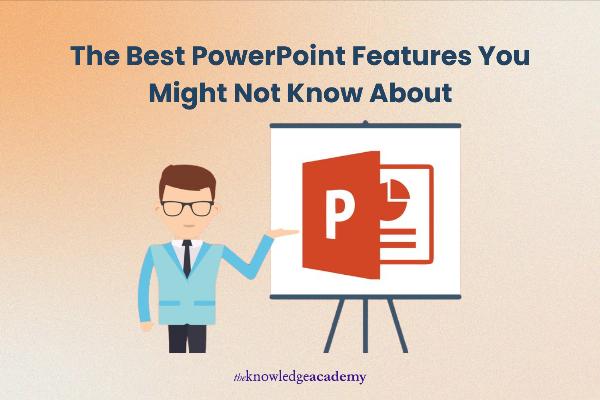Master These Business Analysis Techniques to Outperform the Competition

Strong 8k brings an ultra-HD IPTV experience to your living room and your pocket.
In today’s hyper-competitive market landscape, mastering advanced Business Analysis Techniques can give your organisation a decisive edge. These methodologies are not just tools; they are the compasses that guide strategic decisions, enhance operational efficiency, and improve project outcomes.
Whether you're a budding analyst or a seasoned executive, equipping yourself with the right techniques can transform raw data into actionable insights, propelling your business ahead of the competition. Let’s delve into some of the most effective techniques that can help you sharpen your analytical capabilities and drive your business to new heights.
Table of Contents
- SWOT Analysis
- PESTLE Analysis
- Porter’s Five Forces
- The Balanced Scorecard
- Customer Journey Mapping
- Benchmarking
- Data Mining
- Gap Analysis
- Process Modelling
- Scenario Planning
- Conclusion
SWOT Analysis
SWOT Analysis is a fundamental technique used to assess the Strengths, Weaknesses, Opportunities, and Threats related to a business venture. By systematically evaluating these four elements, companies can form a strategy that capitalises on their internal capabilities while mitigating risks associated with external factors. This holistic view is crucial for strategic planning and can serve as the foundation for more complex analyses.
PESTLE Analysis
PESTLE Analysis examines the Political, Economic, Social, Technological, Legal, and Environmental factors that could impact your business. This method is particularly useful for identifying big-picture opportunities and threats from the external environment, enabling businesses to adjust their strategies in response to societal trends and economic shifts. By staying ahead of these macro factors, a company can maintain a proactive stance and adapt quickly to external changes.
Porter’s Five Forces
Developed by Michael E. Porter, this framework is essential for understanding the competitive dynamics within an industry. It examines how five key forces shape the market: competitive rivalry, bargaining power of suppliers, bargaining power of buyers, threat of new entrants, and threat of substitute products. By analysing these forces, businesses can develop strategies to enhance their market position and reduce competitive pressures.
The Balanced Scorecard
The Balanced Scorecard is a strategic planning and management system that links performance metrics to strategic objectives. It views the organisation from four perspectives: Financial, Customer, Internal Processes, and Learning and Growth. This technique helps businesses measure and provide feedback to teams about their progress towards achieving strategic targets, ensuring that all parts of the organisation are aligned and moving together towards common goals.
Customer Journey Mapping
Customer Journey Mapping is a method used to visualise the process that a customer goes through when interacting with a company, from initial contact to long-term loyalty. This analysis helps businesses identify key interactions and touchpoints that shape the customer’s experience. By understanding and optimising these journeys, companies can enhance customer satisfaction, foster loyalty, and ultimately drive revenue.
Benchmarking
Benchmarking involves comparing business processes and performance metrics to industry bests or best practices from other industries. This technique allows companies to develop plans on how to adopt these best practices, identify areas of improvement, and measure performance against the standards set by leaders in the field. Benchmarking is crucial for staying competitive and continuously improving.
Data Mining
Data mining involves extracting valuable information from large sets of data, identifying patterns, and building models to predict future trends. This technique can be incredibly powerful in uncovering hidden insights that can inform strategic decisions, such as identifying new market opportunities, customer preferences, and operational improvements.
Gap Analysis
Gap Analysis is a methodical approach used to identify the gap between a company’s actual performance and its potential or desired performance. By analysing the current state and comparing it with the ideal state, businesses can pinpoint specific areas that require improvement. This technique is invaluable for strategic planning as it helps to outline the necessary steps to achieve business goals, allocate resources more effectively, and set realistic timelines for accomplishing targets.
Process Modelling
Process Modelling involves creating detailed flowcharts or diagrams to represent and analyse business processes. This technique allows companies to visualise complex processes and identify inefficiencies, redundancies, or bottlenecks. By understanding the intricacies of how processes work, businesses can streamline operations, enhance productivity, and ultimately deliver better value to customers. It also facilitates better communication among team members, ensuring that everyone understands the workflow and their role in the process.
Scenario Planning
Scenario Planning is a strategic planning method that allows businesses to explore and prepare for various future scenarios. This technique involves identifying external trends and potential unexpected events, and modelling how they could affect the business. By preparing multiple detailed scenarios, companies can develop flexible strategies that allow them to quickly adapt to changes in the market environment. Scenario planning is particularly useful in today’s volatile world, helping businesses navigate uncertainty with greater confidence.
Conclusion
Mastering these business analysis techniques will equip you with the tools to not just keep up but stay ahead in the competitive business environment. Each method offers unique insights that can help refine strategies, improve efficiency, and enhance customer satisfaction.
By integrating these techniques into your business practices, you can build a robust analytical framework that drives your organisation towards sustained success. Embrace these methodologies to transform challenges into opportunities and truly outperform the competition.
Note: IndiBlogHub features both user-submitted and editorial content. We do not verify third-party contributions. Read our Disclaimer and Privacy Policyfor details.







